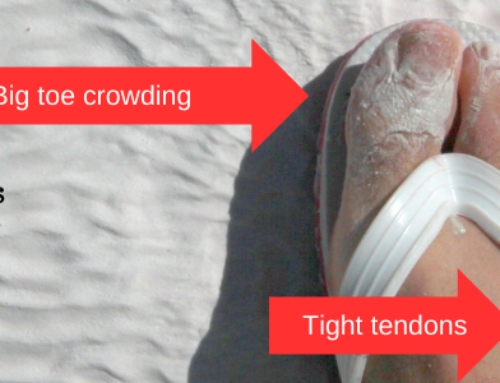If anyone rags on Austin the three issues that always come up are:
- Lack of public transportation
- $300,000-500,000 is considered affordable housing
- Mold and pollen will totally kick your backside here
As an aromatherapist and reflexologist I can’t help you with the first two problems but I can probably help you find relief on the third one!
Allergic Rhinitis, Hay Fever, Chronic Sinusitis
 Pollen and mold (fungi) trigger an immune response in some bodies. Hay fever and allergic rhinitis are interchangeable terms to describe a set of symptoms associated with seasonal allergies. Chronic sinusitis is primarily caused by mold spores and as the name implies can last for months or years for some people.
Pollen and mold (fungi) trigger an immune response in some bodies. Hay fever and allergic rhinitis are interchangeable terms to describe a set of symptoms associated with seasonal allergies. Chronic sinusitis is primarily caused by mold spores and as the name implies can last for months or years for some people.
In a dual Reflexology-Aromatherapy treatment plan we look at the acute symptoms as well as the underlying issues to create a holistic approach to wellness.
The acute symptoms may include:
- Sinus pain or pressure – caused by both an inflammation of the mucous membranes of the sinus cavities as well as trapped mucous. In some cases this can lead to a bacterial or fungal sinus infection.
- Itchy, watery eyes – an inflammatory response to airborne pollen and pressure from the sinuses.
- Itchy, sore throat and cough – caused by post-nasal drip from the sinuses down the back of the throat causing irritation and inflammation of the mucous membranes.
- Ear congestion – the Eustachian tubes can be blocked due to the increased swelling of the sinuses and cause auditory disruption and lead to a secondary sinus infection or ear infection.
Factors that can contribute to discomfort include:
- Stress – according to this Ohio study published in the Annals of Allergy, Asthma, and Immunology in 2013, stress can trigger allergy flares.
- Neck and Jaw Disorders – temporomandibular disorder (TMD/TMJD) can increase discomfort when the maxillary sinuses are full. Whiplash and alignment issues associated with the neck may also cause an increase in discomfort and may contribute to poor drainage of the sinuses and eustachian tubes.
- Alcohol – a number of research papers have been written about the effect alcohol has on increasing inflammation in the sinuses of those with allergic rhinitis and asthma.
- Water Intake – keeping up with your water intake helps to support proper hydration in the mucous membranes that line the sinus cavities. Also keep in mind that antihistamine and decongestant medications can be drying to the tissues and water intake should be adjusted accordingly.
- Indoor Air Pollution – pollutants like off-gassing furniture, synthetic fragrances in your laundry detergent and personal care products, and even houseplants you may be allergic to can aggravate symptoms. Opt for fragrance-free when possible and do yourself and your neighbors a favor by switching to a more natural laundry detergent and ditch those stinky dryer sheets!
- Histamine-Triggering Foods – if you have an allergy to grass pollen you might not tolerate foods like celery, melons, oranges, peaches, tomato. Check what other pollen-food allergy combos can create an oral allergy syndrome.
- Poor Nighttime Air Quality – carbon dioxide, a chemical released in the process of exhalation, has a tendency to build up in poorly ventilated bedrooms overnight. One study found adding a fan or cracking a window not only improved sleep quality but test subjects had better mental concentration the following day. Now, you won’t want to open the window and bring all that pollen in but my clients that run a fan or air purifier at night report a decrease in allergy symptoms and an increase in sleep quality.
Building a Treatment Plan for Seasonal Allergies
 Reflexology and Aromatherapy both shine when supporting the body experiencing seasonal allergies.
Reflexology and Aromatherapy both shine when supporting the body experiencing seasonal allergies.
An Aromatherapy treatment plan will look a lot like this:
- decrease localized inflammation
- thin mucous
- clear mucous
- address fungal or bacterial infection
- general tonification of the body and tissues
A Reflexology treatment plan will look a lot like this:
- relax areas of cranial and cervical tension
- promote sinus drainage
- move stagnant fluids and enhance circulation
- general tonification of the body and tissues
Seasonal and constitutional support is one of the more important pieces of developing a treatment plan for long-term wellness support in the face of seasonal allergies. In Ayurveda the three primary constitutions, or doshas, present uniquely when it comes to allergic rhinitis and chronic sinusitis:
Vata dosha has a natural tendency towards dryness and seasonal changes can be challenging for this constitution. Keeping the mucous membranes well hydrated during high pollen and mold days is important for Vata types who have a tendency towards dryer mucousal membranes in the airways. A long-term treatment plan will focus on hydration of the tissues, building up the blood, supporting wellness routines, and circulating energy to avoid stagnation.
Pitta dosha has a natural tendency towards overheating so a long-term treatment plan will focus on maintaining appropriate circulation of energy in the fluids of the body. Too much heat in the sinuses can aggravate the body’s response to pollen or fungi.
Kapha dosha has a natural tendency to produce and hold onto fluids in the body, this creates a particular challenge when those fluids end up being produced and stored in the sinuses. Furthermore, those with a tendency towards Kapha dosha may struggle the most with during seasonal allergies and have a tendency to suffer from chronic sinusitis. A long-term treatment plan will balance hydration in the body to avoid excess damp (kapha affinity) and excess air (vata affinity) with an eye towards drainage of the tissues when appropriate.
Appointments are available Monday through Friday via the online scheduler or by phone: 512-666-9374. Phone consultations are available for those who would like an Aromatherapy consultation but cannot get to the clinic here in Austin, Texas.
Creative Commons Images: OpenStax College, Creative Commons License, 2013









Very interesting and informative read. Thank you. My son suffers allergies so I will definitely follow the advice. I’m particularly interested in the TMD my husband suffers this interesting to see the link between this and allergies.
Glad you enjoyed it, Amanda! Hope your husband finds relief soon!